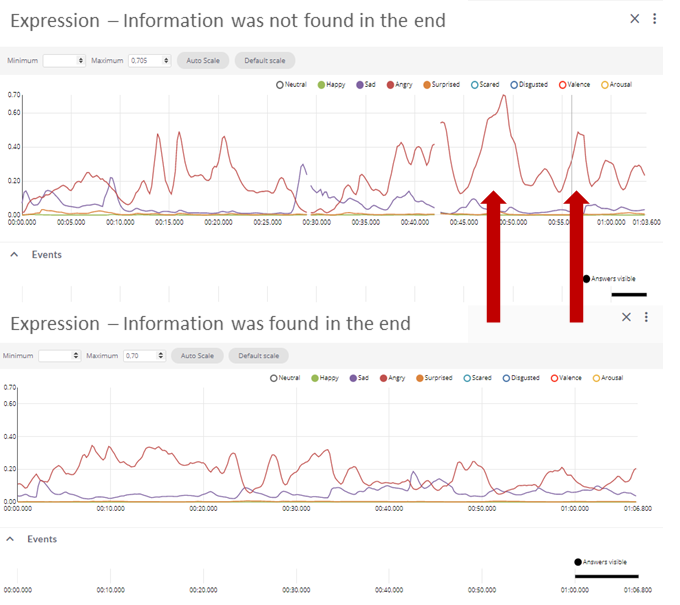Complex Website Tasks Increase the Expression of Anger
Our team’s paper - in which we used FaceReader Online - was recently published in the International Journal of Human–Computer Interaction (Taylor & Francis). Together with Lisanne Talen (studying for her Psychobiology degree at the University of Amsterdam), we performed a UX study in which we studied facial expressions in response to complex tasks.
Why complexity is a relevant concept
To stand out among the large variations of websites that exist, users should have a good experience. A good experience can, for example, promote further use of the website. Complexity seems to play a role in the usability of websites. High complexity can lead to a blockage or delay in reaching the goal on the website and lead to negative feelings such as frustration.
Design of the study
In this experiment, we created tasks that differed in complexity based on the design of the website, and based on the ease to find a particular article on the website (in addition, we also had math questions, which varied in difficulty, as a control task.) Participants participated from the ease of their own home via a Qualtrics survey with FaceReader Online recorder embedded in it. A total of 75 participants who finished the experiment were included in the analysis. 19 participants were deleted because their quality score was very low in one of the tasks (<2), but the average quality score of the total sample was very high (9 out of 10).
Complexity increases angry expressions
Because website and question stimuli do not have a fixed length it was important to look at more than the simple average. A custom analysis with the frame by frame data (exportable from FaceReader Online) was done to analyze to highest 5% of anger scores. The expression anger is relevant because it has overlapping activations with frustration and effort (see also this interesting blog post). In more complex math and search tasks, more anger expressions were found. So not finding something on a website could have a similar effect as thinking about a difficult math solution. Design complexity did not increase anger, so static design choices may not be strong enough to increase this expression. But a blocking when someone cannot find something on a website may be spotted by looking at facial expressions (see for example below, where there are more/higher anger peaks when the participant was unsuccessful in finding the article).
Our study shows how FaceReader Online could be used to measure the usability aspects of a website. If you are interested in the full details, you can find the paper here. To start setting up your own UX study with FaceReader Online, request a trial
here.
